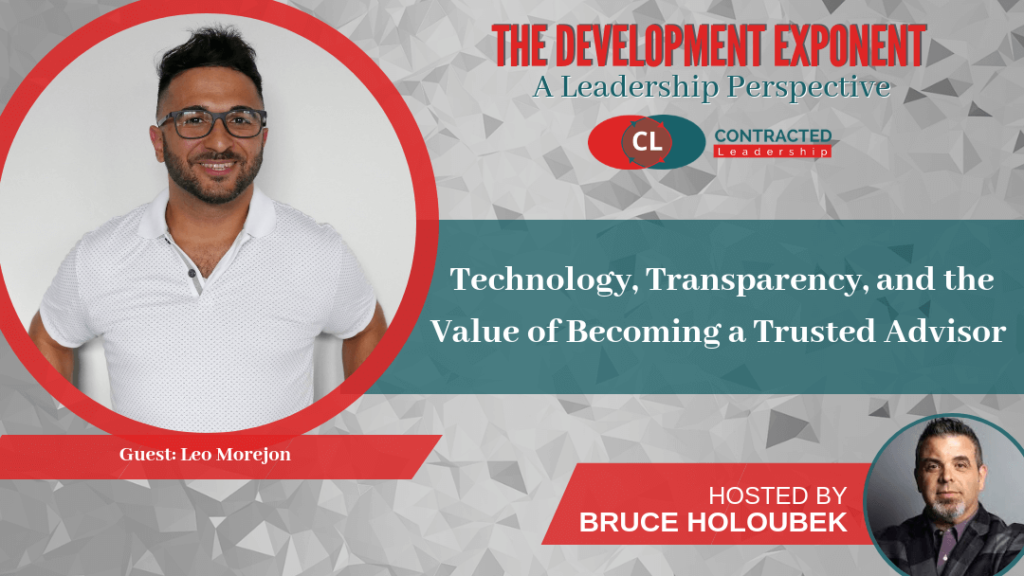
How much thought do you put into how technology has shifted the way we communicate, connect, or come together as communities? While it has changed by what feels like light years, especially in the last decade – do we think about it much? Or just take it for granted?
That was the real jumping point for my interview with award-winning marketer, social media expert, and speaker Leo Morejon. Famous in the marketing world for record-setting social media campaigns – I found him to be just a down-to-earth guy whose passion is people. Connecting them. Helping them communicate. Supporting them in their goals.
What I’ve learned about Leo is that he’s amazing at helping people see technology from the 30,000-foot view, then identifying what works for them so they realize how powerful it can be across marketing disciplines, sales, and business development. Because, like social media, they are ways to connect with people. Businesses have something people want or need, and Leo is a master at helping them connect people to those needs in innovative ways.
Come first from a place of love and compassion for your fellow human beings and the rest usually falls into place. #peoplefirstleadership Click To TweetOne common thread throughout our time together was the premise that to succeed in today’s world – regardless of position – from leader to team member to consultant to phone operator – step one is to commit to becoming a trusted advisor. Leo first learned this concept from his trusted mentor, Brian Weiner.
I totally concur. When our commitment is to do everything within our power, position, skillset, and knowledge base to bring value to every relationship – we’re giving, rather than taking. That builds trust equity in that relationship, which is a game-changer.
It creates a difference in the way we lead and do business. It makes it way less transactional – “I’m in it for the paycheck” – and way more personal – “I’m here for the relationship.”
Leo talks about teaching not only these skills to students and organizational leaders – but the passion behind them. While many believe that passion isn’t a teachable skill, it is, as Leo shared, something that people can be inspired to have once they see the why of what they do. When you understand why customers want your product, what it can do for them, and how it can change their lives – then you can relate to them. The more you can relate to people, the better you can build a relationship, which makes you not just a better salesperson, but a more trusted advisor.
That makes a lot of sense.
“Leadership, regardless of age, vertical, product, or industry needs to be on social because the world we live in and the consumers we are marketing to demand that transparency.” – Leo Morejon Click To TweetWhen it comes to social media, I learned in our interview that it is no longer a should-do, but a must do in a world that insists on a new level of transparency. It’s time for leaders (of all ages) to get on board. I say all ages because, let’s face it, many (not all) older leaders resist it.
Stop. As Leo said, “Leadership, regardless of age, vertical, product, or industry needs to be on social because the world we live in and the consumers we are marketing to demand that transparency.”
In other words, they want to know that a product or service is trusted, but they also that the people behind those products and services are trusted.
What are two misconceptions that keep people from utilizing social media?
Too Time Consuming: Leo shares that he spends about an hour every weekend loading up and scheduling his social media posts on a platform such as Hootsuite. There’s no reason to think it has to be the time-drain many people make it out to be. While commenting and responding should be part of a daily practice, whether you spend ten minutes a day or ten hours is really a matter of focus and discipline. Said a little differently, don’t go down the rabbit holes, start arguing politics, or sucked into a video stream. Be strategic and conscious in your social media practices and you’ll create the presence you need without it being a time waste.
There’s too much of a learning curve. Social media is designed to be social. In other words, it’s an online conversation – one-to-many. When first consulting with a client, Leo engages them in a conversation and asks questions like, “What do you want people to know about you and your business?” Those are easy answers. They also set the framework for the “conversation” you have with the world online.
Technology doesn’t replace the human to human connection, it just gives us new bridges and pathways to communicate more effectively and with more people. Click To TweetI asked Leo what three ideas he wanted leaders to take away from our time together. Loved his answers! They were:
- Always assume something is your fault or problem. Taking ownership of a situation is a great first step to giving you the power to problem solve and solution find.
- Outline expectations. The truth is people aren’t mind readers, though often we think they should be. We assume they understand our positions, needs, expectations, but that’s not always accurate or fair. Spell it out for people! It makes life and business so much simpler when you do.
- Give the benefit of the doubt. Listen, we don’t always know what people are going through. Come first from a place of love and compassion for your fellow human beings and the rest usually falls into place.
For me, that last one was hit home. I was recently on a daddy daughter date night with my six-year-old. We were driving and the car in front of me did something reckless and I reacted to it with frustration and said something I shouldn’t have said. My daughter looked over at me and asked, “Daddy, can you think of another reason why that person did what they did?” Out of the mouth of babes, as they say. It was a reminder to not make assumptions and come from a place of compassion. A reminder I think we can all use more of these days.
I loved the lessons in social media skill building and myth-busting, as well as the people skills gleaned from this interview. Technology creates incredible pathways for communication which is awesome! Behind it all, however, it’s important to remember that even with technology as an engine – we still human beings in the driver’s seats navigating relationships with other human beings.
What steps will you take this week to navigate it all more effectively? Let’s have that conversation!

